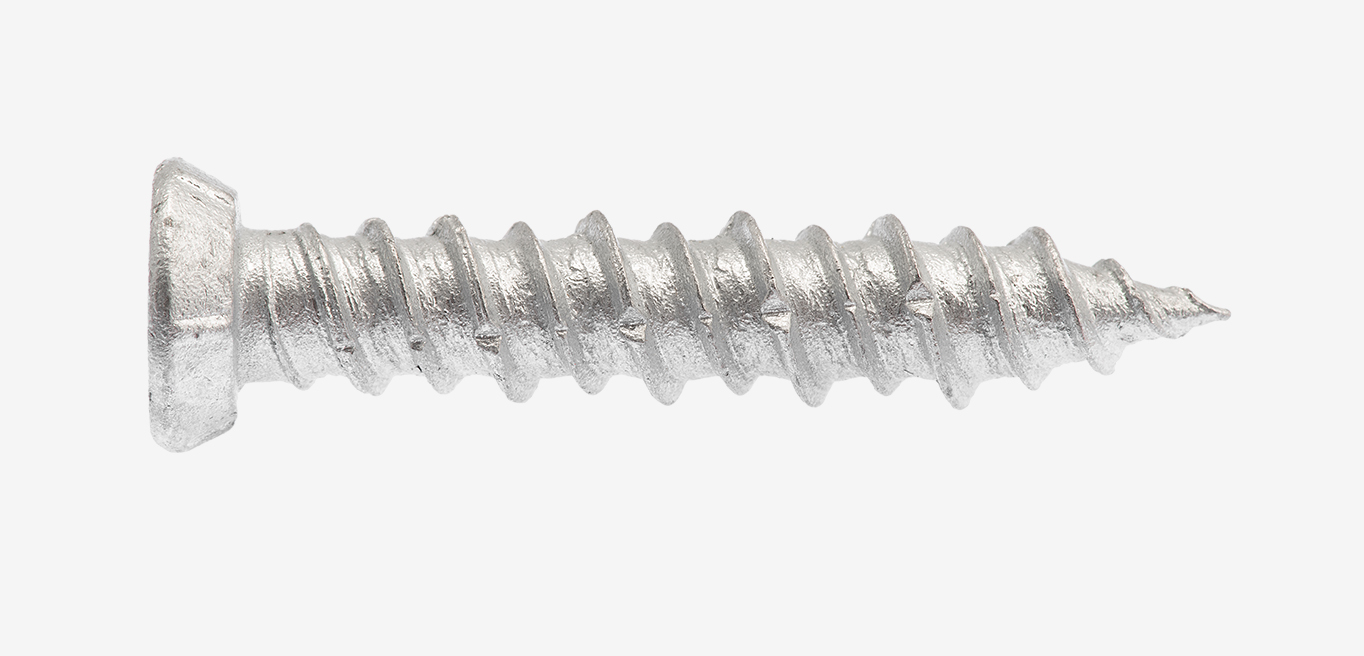In the realm of construction, the integrity and safety of structures are paramount. One of the key components ensuring this integrity is the fastening system used to bind materials together. Among these, concrete or masonry screws have emerged as indispensable tools, providing reliable anchorage and contributing to the overall stability of buildings. These screws are engineered to secure objects to concrete, brick, and other masonry materials, playing a crucial role in modern construction techniques.
The Role of Masonry or Concrete Screws
Masonry or concrete screws are specifically designed to tap into hard, brittle materials like concrete and masonry. Their primary function is to provide a secure, long-lasting hold in these materials, which are typically difficult to penetrate with conventional screws. Unlike nails or other fasteners that might loosen over time, concrete screws are engineered to stay firmly in place, ensuring the durability and safety of the construction.
The design of these screws includes a high-tensile steel composition, which is often coated to resist corrosion. The threads of concrete screws are usually wider and deeper than those of ordinary screws, allowing them to grip tightly into the masonry material.
Types of Masonry or Concrete Screws
There are several types of masonry or concrete screws, each tailored for specific applications:
- Tapcon Screws: These are among the most common types of masonry screws. They feature a blue corrosion-resistant coating and are available in various lengths and diameters. Tapcon screws are used for securing electrical boxes, plumbing fixtures, and other hardware to concrete walls.
- Hex Head Screws: These screws have a hexagonal head, allowing for easy installation with a socket wrench or driver. They are ideal for heavy-duty applications, such as securing metal frameworks or large wooden beams to concrete bases.
- Flat Head Screws: Designed to sit flush with the surface, flat head screws are perfect for applications where a smooth finish is desired. They are commonly used in interior finishing work, such as securing baseboards or drywall to concrete walls.
- Concrete Wedge Anchors: Though not screws in the traditional sense, wedge anchors function similarly by expanding once installed into the drilled hole, providing a stronghold. They are often used in high-load applications, such as securing machinery or large structural components.
Installation Process
Installing masonry or concrete screws requires precise drilling and preparation. The process generally involves the following steps:
- Drilling the Hole: A hammer drill with a carbide-tipped masonry bit is used to drill a hole into the concrete or masonry material. The hole should be slightly deeper than the length of the screw to allow for any dust and debris.
- Cleaning the Hole: It’s essential to remove any dust or debris from the hole to ensure a tight fit. This can be done using a brush or compressed air.
- Inserting the Screw: The screw is then driven into the hole using a power driver or a wrench, depending on the type of screw. The threads of the screw will tap into the material, creating a secure hold.
Advantages of Masonry or Concrete Screws
The use of masonry or concrete screws offers several advantages in construction:
- Strong Hold: These screws provide a strong, reliable hold that is essential for the safety and stability of structures.
- Ease of Installation: Unlike traditional anchors, masonry screws can be installed quickly and efficiently, saving time on the job site.
- Versatility: Available in various sizes and types, masonry screws can be used for a wide range of applications, from light-duty installations to heavy structural anchoring.
- Removability: Unlike some other types of anchors, concrete screws can often be removed and reinstalled without damaging the base material.
Summing up, masonry screws are vital components in modern construction, ensuring that structures are safe, stable, and durable.







Leave a Reply